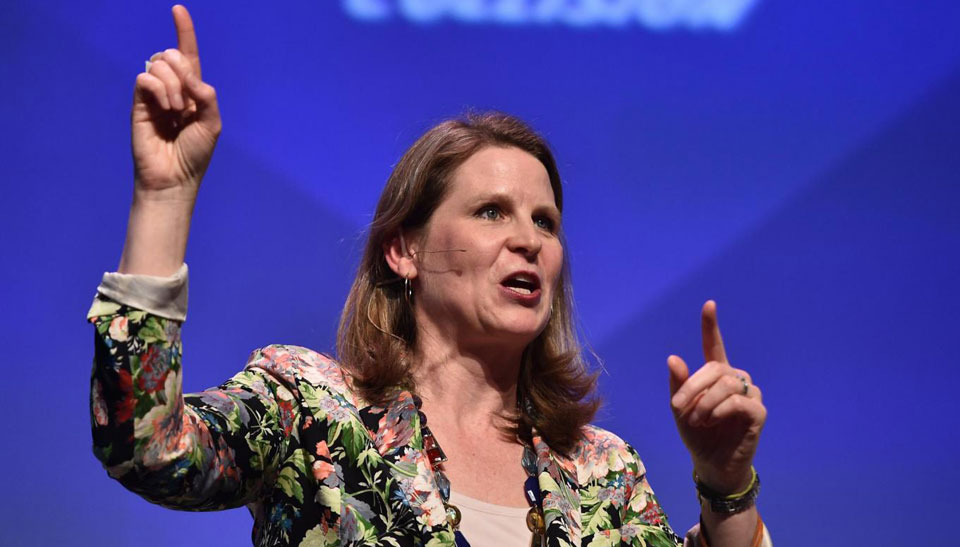
WASHINGTON —The nation’s big-city mayors have formally backed the Protect the Right to Organize (PRO) Act, the wide-ranging pro-worker labor law reform legislation Congress is considering.
Their U.S. Conference of Mayors resolution, during their now-zoomed annual meeting, drew praise from AFL-CIO President Liz Shuler. The labor federation is leading the crusade for the House-passed measure, HR842, which faces right-wing, corporate, and Republican nationalism and a possible Senate GOP filibuster threat.
That threat prompted the federation to again demand the Senate junk the filibuster. Such threats allow a minority of senators to block any and every piece of progressive and pro-worker legislation.
The congressional “reconciliation” bill approved in August clears the way for other measures to avoid the filibuster, including the higher fines for labor law-breaking included in the PRO Act. Backers also contend it lets the entire measure avoid the looming Republican talkathon, but supporters are gearing up allies for it, just in case. That includes the mayors.
“The nation’s mayors have called for passage of the PRO Act, and now it is time for the senators in Washington to listen,” Shuler said. The resolution also demands Congress pass related legislation ordering states to allow collective bargaining for public sector workers. Republican-run red states have banned it.
“Building back better”—Democratic President Joe Biden’s program, which labor strongly supports—“starts with enacting the PRO Act’s common-sense workplace safety protections, expanding collective bargaining, ensuring gender and racial equality on the job, and enhancing penalties for employers who violate our rights,” said Shuler.
“I applaud the mayors’ conference for its steadfast commitment to giving working families a chance to level the playing field in our economy.”
How much impact the mayors’ resolutions, on the PRO Act or anything else, will have is uncertain. Lawmakers, especially Democrats and from urban areas, listen. Republicans and rural legislators don’t.
The resolution’s sponsors included Democratic Mayors Bill de Blasio of New York, Lori Lightfoot of Chicago, Eric Garcetti of Los Angeles, Kim Janey of Boston, Tishaura Jones of St. Louis, Nan Whaley of Dayton, Ohio, Jenny Durkan of Seattle, and three Arizona mayors.
Only three mayors opposed the PRO Act in committee or on the floor, the conference reported: Bryan Barnett (R) of Rochester Hills, Mich., Steve Benjamin (D) of Columbia, S.C., and Francis Suarez (R) of Miami. Barnett and Suarez also opposed most other resolutions.
The mayors’ pro-PRO Act resolution restates the right to organize is national policy but points out workers’ rights have been weakened by the courts and Congress. It carefully does not mention corporate opposition. But the right to organize, and workers’ rights in general, are vital to battling poverty in cities and lifting all residents economically, the resolution adds.
“The wage and wealth gap between the rich and poor has reached a 50-year high, and research shows the decline in union membership is a direct cause of the rise in economic inequality,” the mayors’ resolution says. That “has far-ranging repercussions on cities,” including in housing, public safety, health, infrastructure, the environment, and schools. It’s in cities’ and the nation’s “best interest to provide good safe and secure employment to all and (in) protecting the democratic rights of all workers.”












Comments